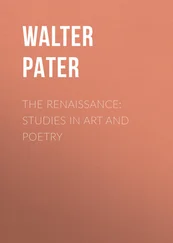Rome was now directly involved. At this time the city had only one topic of conversation: whether or not Roman citizenship should be conferred on Christophe Longueil, a French resident who had changed his name to Longolius and made stirringly Ciceronian speeches in praise of the city. Longolius had once compared Augustus unfavourably with Charlemagne: Leo thought this youthful indiscretion should be overlooked, but others held that it marked Longolius as an irredeemable barbarian. It is one of the tragedies of history that the large-minded Leo, who knew Germany at first hand from his years of exile, had never studied theology, and was therefore incompetent to treat with Luther, as he did with Longolius. The Luther affair passed to the Master of the Sacred Palace, a highly intransigent Dominican named Sebastiano Prierias, who once stated that ‘anyone who denies that the doctrine of the Roman Church and of the Roman Pontiff is virtually infallible, so that even Holy Scripture draws its force and authority therefrom, is a heretic.’ Shocked by Luther’s Resolution Prierias dashed off a reply, abusing the German roundly, calling him a son of a bitch, and centring his arguments less on Luther’s statements than on the fact that a humble friar had dared to question the teaching of the Pope.
Leo, however, did not leave it at that. He had a friend in the leading Italian philosopher of the day, a man of the same moderate temperament as himself. This was Tommaso de Vio, known as Cajetan, a Dominican who at the time of the Council of Pisa had written a sensible defence of the Papacy, marred, however, by a failure to probe the metaphor underlying his description of the Pope as ‘head of the Church corporate’. Leo instructed Cajetan, who was then in Germany, to hold an interview with Luther.
‘I was received,’ writes Luther, ‘by the most reverend lord cardinal legate both graciously and with almost too much respect, for he is a man in every way different from those extremely harsh bloodhounds who track down monks among us … I immediately asked to be instructed in what matters I had been wrong, since I was not conscious of any errors.’ Cajetan began by pointing to a statement by Luther that the merits of Christ do not constitute the treasure of merits of indulgence; this, he said, contradicted an Extravagante 1 issued by Clement VI (1342–52). He did not expect Luther to know the Extravagante , which was absent from some editions of canon law. But Luther did know it and replied that it did not impress him as being truthful or authoritative, chiefly because ‘it distorts the Holy Scriptures and audaciously twists the words into a meaning which they do not have in their context.’ The Scriptures, he concluded, were in every case to be preferred to the Extravagante , which merely trotted out the teaching of St Thomas Aquinas. Further discussions then took place ‘but in no one point did we even remotely come to any agreement.’
Agreement was precluded by the fact that Luther differed radically from Cajetan on the nature of the Pope’s teaching authority. Luther began to see that there was more than a fortuitous link between Clement VI’s attitude in the Extravagante and the behaviour of Popes in his own lifetime. Both tried to mould God to man’s needs. So Luther’s next move was to criticize the way papal authority was exercised by such Popes as Julius II and Leo X. In a letter to Leo dated 6 April 1520 Concerning Christian Liberty , Luther attacks the Petrine office less as an institution based on canon law than against its ‘excessive’, imperialistic claim to power, and its abandonment of the notion of service to the Church as the community of the faithful. In a passage which shows how sensitive he was to the actual language employed in Rome, Luther writes: ‘Therefore, Leo, my Father, beware of listening to those sirens who make you out to be not simply a man, but partly God— mixtum Deum— so that you can command and require whatever you will. This shall not be, nor will you prevail. You are the servant of servants, and the most wretchedly and dangerously placed man alive.’
Later in the same year Luther rejected the teaching authority of the Pope altogether and, putting himself at the head of the movement which saw in Rome the chief obstacle to reform, appealed to a Council to be summoned by the Emperor Charles V: a new Nicaea presided over by a new Constantine, at which not only clergy but laity too would hammer out a pure religion like that of the early Christians.
In Rome the machinery for dealing with revolt now slipped into action. Luther’s appeal to a Council was rejected on the basis of Pius II and Julius II’s prohibition of any such move. A commission presided over by Cajetan pronounced heretical 41 propositions in Luther’s writings, most of them already condemned by the University of Louvain, a body which Luther himself had named as being impartial. Among the views condemned were Luther’s conception of all-powerful sin (‘In every good work the righteous man sins,’ ‘A good work done very well is a venial sin,’ ‘No one is certain that he is not always sinning mortally, because of the truly hidden vice of pride’), his interpretation of the role of faith, and of the sacraments, and finally his rejection of papal authority. On 2 May Leo examined a draft of the bull Exsurge at his hunting-lodge, and it was then submitted to the sacred college at no less than four consistories; it is noteworthy that the German episcopate was excluded altogether from proceedings against Luther, and this was later to have an adverse effect on Rome. In June 1520 Exsurge was published, condemning the 41 propositions, ordering Luther’s writings destroyed, forbidding him to teach or preach, and threatening him with excommunication if he did not recant within two months. Copies were sent for enforcement to the Emperor and the German princes.
But Rome was already one move behind. In July Luther had published his Letter to the Christian Nobility of Germany in which, drawing on the views of John Huss and the Bohemians, he moved beyond an attack on the papacy to a complete rejection of tradition, in place of which he set up the holy word of Scripture. By taking his stand on Scripture Luther hoped to re-establish the sovereignty of God alone, over against anything the Church had said or might say. In December Luther publicly burned the bull Exsurge. On 3 January 1521 Leo excommunicated Martin Luther: cut him off ‘as a dead branch’.
But Luther was hardly ‘a dead branch’. As a Saxon and a Wittenberg Professor, he belonged to a vigorous community conscious of its independence and protected by the swaggering, moustachioed Frederick, Elector of Saxony, absolute lord in his own domain and the founder of Wittenberg University, whose professors he looked on as his own children. Frederick had no intention of handing Luther over to be burned at the stake, like poor John Huss a century earlier. Intellectually, too, Luther belonged to a flourishing band of scholars, notably Philip Melanchthon, the armourer’s frail son who was the best humanist in Germany, and Ulrich von Hutten, a tough knight errant steeped in Tacitus’s Germania , finding in that book the purity of morals and manliness he ascribed to the German character. And behind Luther stood the men of Germany, disliking and sometimes hating Rome, conscious of their new strength as a people. Roman cardinals might be rich, but they banked with the Fuggers; German mercenaries in Charles VIII’s invasion army had scattered the Italians, thus proving themselves worthy successors of Arminius, the tribal leader who decisively defeated Varus in 9 A.D. The late Emperor, Maximilian, had confided to his sister that one day he intended to add the papal tiara to his iron crown: was it so impossible an ambition?
Читать дальше












